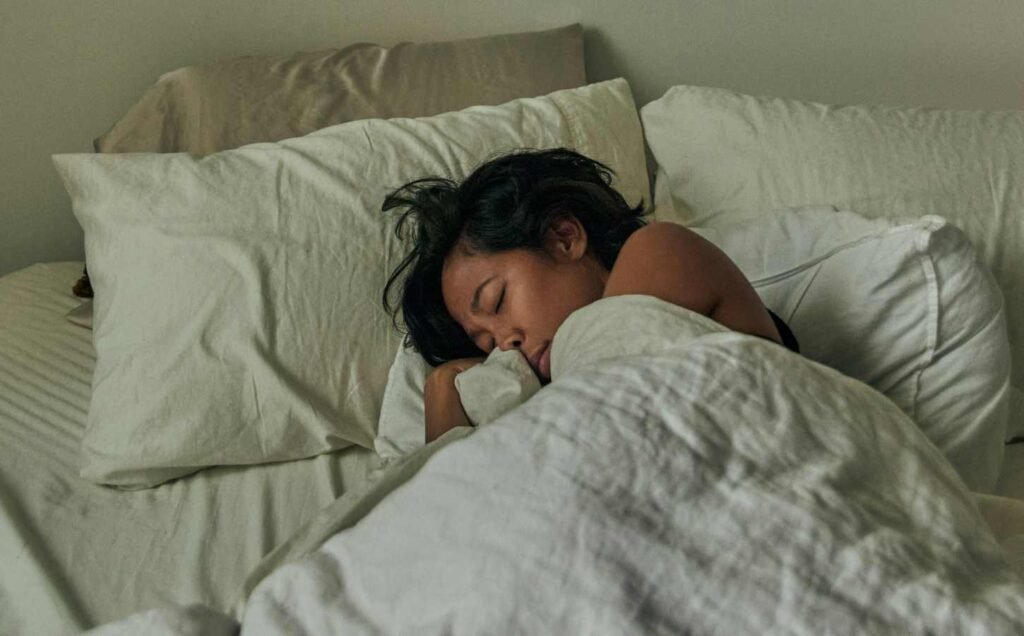Sleep is as crucial to our health as diet and exercise, yet many of us struggle to get enough rest each night. What if the secret to better sleep lies not just in the duration of our sleep but also in the quality of our diet? This article explores the significant impact that your dietary choices have on your sleep quality and offers insights into making smarter food decisions for a restful night.
The Science Behind Diet and Sleep
The foods we consume influence our brain chemistry, hormone levels, and stress responses, all of which play critical roles in how well we sleep. For example:
- Serotonin and Melatonin: Foods rich in tryptophan, an amino acid, help the body produce serotonin, a precursor to the sleep hormone melatonin.
- Blood Sugar Levels: High sugar intake can cause spikes in blood sugar levels, leading to energy bursts at night that can interrupt sleep.
Understanding these connections can help in making informed decisions about what to eat, especially in the hours leading up to bedtime.
Foods Known to Disrupt Sleep
Some foods are notorious for wreaking havoc on our sleep patterns. Here’s a list of common culprits:
- Caffeine: Found in coffee, tea, chocolate, and some sodas, caffeine can significantly disrupt your sleep cycle. It blocks the sleep-inducing chemicals in the brain and increases adrenaline production.
- Heavy, Rich Foods: Fatty foods take longer to digest and can cause discomfort that disrupts sleep. This includes foods like burgers, creamy pastas, and deep-fried treats.
- Spicy Foods: Spicy food can cause heartburn and indigestion, which can make falling asleep more difficult.
- Alcohol: While many believe that alcohol helps them fall asleep, it actually reduces the quality of sleep by interrupting the REM stage.
Avoiding these foods before bedtime can help enhance your sleep quality significantly.

Beneficial Foods That Promote Good Sleep
Just as some foods can interfere with sleep, others can enhance sleep quality. Include these in your diet to promote a better night’s rest:
- Complex Carbohydrates: Whole grains like oatmeal, whole wheat bread, and brown rice help boost serotonin production without causing blood sugar spikes.
- Lean Proteins: Foods like turkey, chicken, and fish that are high in tryptophan promote serotonin production.
- Heart-Healthy Fats: Nuts like almonds and walnuts not only provide good fats but also contain melatonin, which helps regulate your sleep cycle.
- Fruits and Vegetables: Certain fruits like cherries and bananas can boost melatonin levels, while leafy green vegetables are high in calcium, which helps the brain use tryptophan to produce melatonin.
Integrating these foods into your diet can help you not only fall asleep faster but also achieve deeper, more restful sleep.
Practical Tips for a Sleep-Friendly Diet
Here are some practical ways to align your eating habits with your sleep goals:
- Monitor Caffeine Intake: Avoid caffeine at least six hours before bedtime to ensure it doesn’t interfere with your sleep cycle.
- Choose Snacks Wisely: Opt for a light snack 45 minutes before bed if you’re hungry. Something simple like a banana or a small bowl of whole-grain cereal can suffice.
- Stay Hydrated: Dehydration can cause disruptions in sleep, so ensure you’re well-hydrated throughout the day. However, limit fluids close to bedtime to avoid frequent trips to the bathroom.
- Establish a Routine: Eating your meals at the same time each day can help regulate your body’s internal clock and improve your sleep cycle.
The Impact of Timing on Sleep Quality
The timing of your meals can also affect how well you sleep. Eating heavy meals or consuming certain foods too close to bedtime can cause discomfort and indigestion, which can keep you awake. Aim to have your last large meal at least three to four hours before bed, allowing your body ample time to digest.
Conclusion: How Your Diet Impacts Sleep Quality
Your diet plays a foundational role in how well you sleep, affecting everything from the duration of your sleep to its quality and efficiency. By understanding and adjusting what you eat throughout the day, you can enhance your sleep quality, leading to better overall health and well-being.
Embrace these dietary adjustments and notice the positive changes in your sleep patterns. Remember, the key to good health is not just what you eat, but when you eat it too. Sleep well, live well!
The Best and Worst Foods for Sleep: How Your Diet Affects Your Rest

In this related article we look at the relationship between your diet and sleep can help you make choices that promote restful nights. Let’s dive into the best and worst foods for sleep, backed by science, and learn how to adjust your eating habits for the zzz’s you deserve.
Continue reading: The Best and Worst Foods for Sleep
Reclaiming Deep Restful Sleep: The Magnesium Deficiency Solution

Magnesium’s essential role in regulating stress and anxiety levels is fundamental to understanding its influence on sleep quality. It is involved in over 300 biochemical reactions in the body, including those that control the relaxation of the nervous system and induce sleep.
Continue reading: The Magnesium Deficiency Solution




